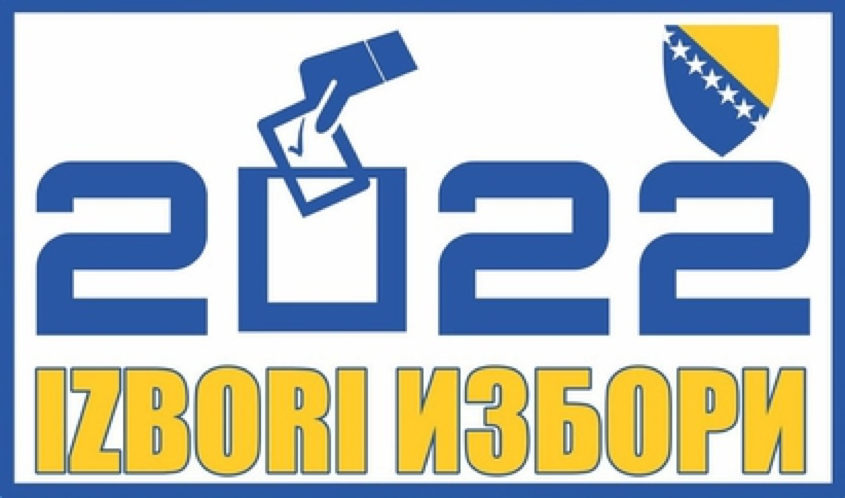

 This past Sunday, Bosnian citizens went to the polls to vote in elections spanning from cantonal leaders to members of the presidency. A stalled economy, an exodus of young people moving to other European countries, and lack of progress on issues are just some of the many issues on the minds of voters. Under the Dayton Agreement, the Bosnian presidency consists of three members: a Serb, a Bosniak, and a Croat, considered the "constituent peoples" of Bosnia. The Serb member is elected by voters living in the subnational entity Republika Srpska, while the Bosniak and Croat members are elected by voters living in the subnational Federation of Bosnia and Herzegovina. This complicated electoral system, created as part of the Dayton Agreement, was developed as an attempt to ensure that the three main ethnic groups in Bosnia and Herzegovina were represented in government, and that the genocide and ethnic cleansing that plagued the country in the 1990s would never again occur.
This past Sunday, Bosnian citizens went to the polls to vote in elections spanning from cantonal leaders to members of the presidency. A stalled economy, an exodus of young people moving to other European countries, and lack of progress on issues are just some of the many issues on the minds of voters. Under the Dayton Agreement, the Bosnian presidency consists of three members: a Serb, a Bosniak, and a Croat, considered the "constituent peoples" of Bosnia. The Serb member is elected by voters living in the subnational entity Republika Srpska, while the Bosniak and Croat members are elected by voters living in the subnational Federation of Bosnia and Herzegovina. This complicated electoral system, created as part of the Dayton Agreement, was developed as an attempt to ensure that the three main ethnic groups in Bosnia and Herzegovina were represented in government, and that the genocide and ethnic cleansing that plagued the country in the 1990s would never again occur.
This year's presidential candidates represented a wide array of political beliefs, and voters resoundingly made their opinions clear. For the Bosniak seat of the presidency, social democrat Denis Bećirović defeated his Bosniak nationalist and conservative opponent, former presidency member Bakir Izetbegović by about 20 points. For the Croat seat Croat Željko Komšić of the Democratic Front party defeated Croatian nationalist Borjana Krišto (Croatian Democratic Union/HDZ). Voters in Republika Srpska selected conservative Serb nationalist Željka Cvijanović to be their representative to the presidency.
Even with the victories of Bećirović and Komšić, both of whom support a pluralistic Bosnian society, some voters doubt they will impact a system riddled with corruption that is still at the mercy of the Office of High Representative, an international legal and governmental overseer created via the Dayton Agreement. Ajdin Fuka, an IT developer who voted for Bećirović, told me that "in these difficult times all around the world I don't expect that we can improve much as a country. The biggest challenge will be to stop corruption and to improve the economy. With Bećirović, I believe these things are possible, but with the other candidates, things will be worse". Dr. Rešad Numić, an emergency physician who grew up in Yugoslavia and survived genocide and ethnic cleansing in the 1990s, told me that from his perspective, "The most important issues [facing Bosnia] can only be discussed once the nationalist parties are removed from power".
Speaking Tuesday on a post-election panel in Sarajevo, former Bosnian foreign minister Zlatko Lagumdžija told the host of the event, Johns Hopkins SAIS Foreign Policy Institute Senior Fellow, Edward Joseph that while Bećirović's election is the biggest change to come to Bosnian politics in some time, the overall results of the election were a mixed bag for democratic development and governmental reform. "…[Bećirović's] first speech on election night was encouraging. However, I think that the politicians who have ruled for the last 30 years have become stronger in these elections. Milorad Dodik (president of SNSD) is stronger, and Dragan Čović (president of HDZ) is the winner of these elections….If things don't change dramatically, and they won't, the SDA has as many votes as the Troika (the pro-reform parties supporting Bećirović) in the Federation of Bosnia and Herzegovina."
As of the publication of this article, the United States has supported electoral reform announced by High Commissioner Christian Schmidt, considered by many to be to the benefit of Croats and the HDZ. This electoral reform has been widely criticized by Bosniaks, and has spurred mass protests at OHR offices in Sarajevo, though Joseph noted at Tuesday's panel that there were next to no protests after the final, more limited decision was announced Sunday. It is crucial, in the aftermath of this election, that the OHR, the US, the EU, and other international stakeholders continue to work towards a better understanding of the needs of Bosnia and Herzegovina. Only once this is accomplished through sustained dialogue with Bosnian citizens, not simply implementing policies through the lens of the 27-year old Dayton Agreement, will Bosnia stand a chance at gaining the prosperity and political stability a number of its European neighbors have enjoyed over the past three decades.